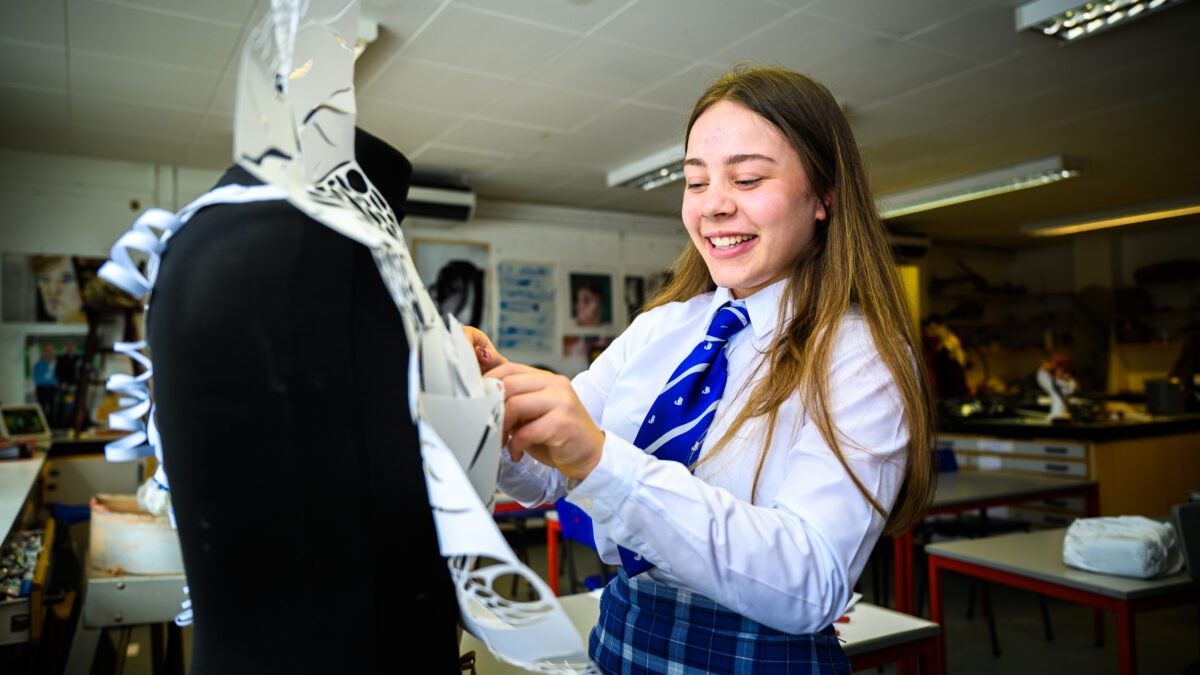Independent schools focus on tailoring education to each individual child
One of the things that sets independent schools apart is the way that learning – in its widest sense – is tailored to each individual child. This is possible thanks to the wide choice of subjects and activities, the first-class facilities and the high number of teachers and support staff in those schools.
“It’s about making sure the expe-rience at school is as enriching for the individual as it can be, whatever that individual’s interests might be,” says John Edward, director of the Scottish Council of Independent Schools (SCIS).
An independent school’s breadth of choice means that as a child develops he or she can benefit from the widest range of experiences. “If you give them an opportunity to try as many things over the course of their junior and senior school career, then you’re more likely to hit upon something they enjoy,” adds Edward.
On the academic side, Scotland’s independent schools have a reputa-tion for excellence fuelled by their smaller pupil-teacher ratios and their significant investment in modern facilities.
A broad curriculum, with a wide choice of subjects for pupils to study up to the highest level, is often complemented by qualifications from different examination boards. Schools may offer exams from the Scottish Qualifications Authority alongside GCSEs, A-levels and the International Baccalaureate.
Independent schools have the autonomy to expand the curriculum and teach subjects outside the norm, which means subjects such as Latin, Mandarin Chinese or economics are not unusual items on the timetable. The sector has also invested widely in technology, which has opened up exciting avenues for learning in recent years.
This autonomy is an important characteristic of the sector. “You can adapt your school to the local, national or individual circumstances. Indeed, you can adapt to the exceptional.
“For things like Covid you can move quickly and do whatever is necessary to meet the demand without having to seek clearance or without having to fit into a wider system. I do think that that nimbleness and that flexibility makes a big difference,” says Edward.
He notes how, when Covid struck in March 2020, schools found ways to teach remotely, adapting existing online systems or introducing new ones, coping with cancelled exams, doing assessments and supporting the pupils, parents and staff in the unknown world. “By the beginning of the summer term 2020 classes were operating as best they could.”
The flexibility and child-centred approach means that for those who are not naturally academic, schools will be able to identify how to help a child find the subjects that capture their interests and support them in their learning.
Small classes also mean that staff can pick up if a child is struggling so that something is done quickly and the pupil does not fall behind. For children with additional support needs most of the SCIS schools have a dedicated support for learning department.
Although the headlines will often be about exams – and the high number of leavers destined for further education – the wider school experience is just as valued. “Many schools would consider the time spent outside the classroom is as important as what happens inside the classroom,” says Edward.
“Whether that is work in the community, or arts and drama, or sport as a team or individual, it is all part of finding a young person’s motivation, getting them to try new things, push themselves out of their comfort zone. It may give them something that becomes a lifelong passion but it also gives them a breadth of interests for when they leave school.”
Extracurricular activities are an integral part of independent schools and the range on offer can be almost daunting. But the chance to try new things with qualified instructors and experienced coaches mean children can find their niche.
Not all need to train at a tennis or golf academy, or be a member of a cup-winning rugby or hockey team. Some children will shine on the stage or make magical music, while others will enjoy sampling the range of experiences on offer. The chance to have a go is an important part of a well-rounded education.
The schools themselves come in all shapes and sizes. SCIS, which is an independent charity, represents 71 independent schools that educate approximately 30,000 children in Scotland.
The choice of small or large, single sex or co-educational and day or boarding means there will be a school that suits each individual child. “We have Steiner schools, Montessori schools, Jesuit schools, we have Muslim schools. So there’s a whole range of different ways in which they can get to the personality of the individual,” says Edward.
Although Covid prompted many schools to provide virtual tours and interviews, Edward highlights the importance of visiting in person to get a sense of whether the school, the teachers and the opportunities are a good fit for a child’s strengths, talents and aspirations. “It really matters to get into school. What might not feel right for some can be what makes it comforting for others.”
No matter what it is that your child is interested in, an independent education gives them the opportunity to find out where their talents lie and help them reach their full potential.



